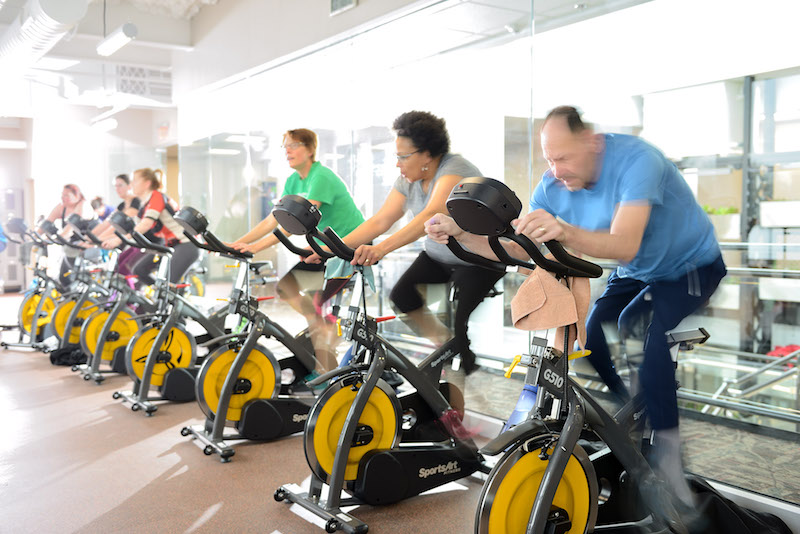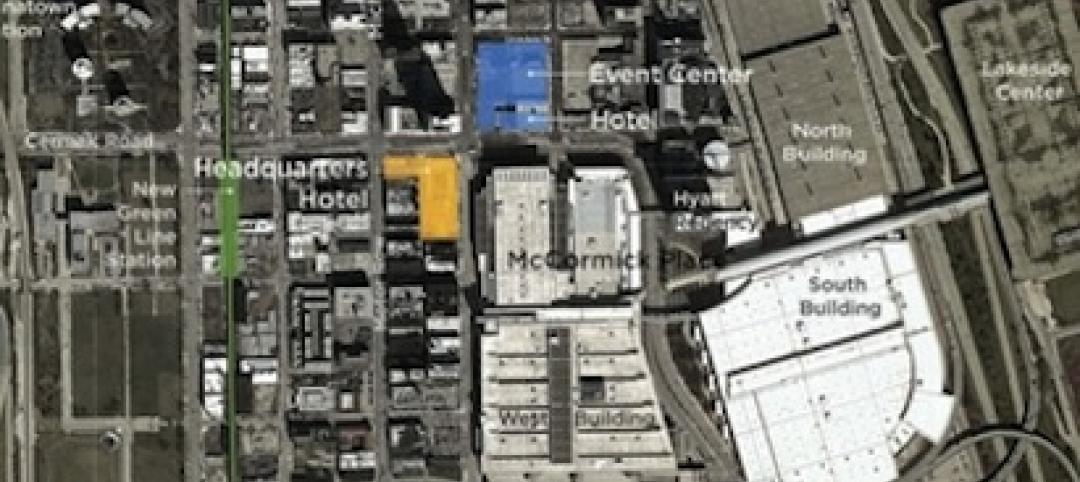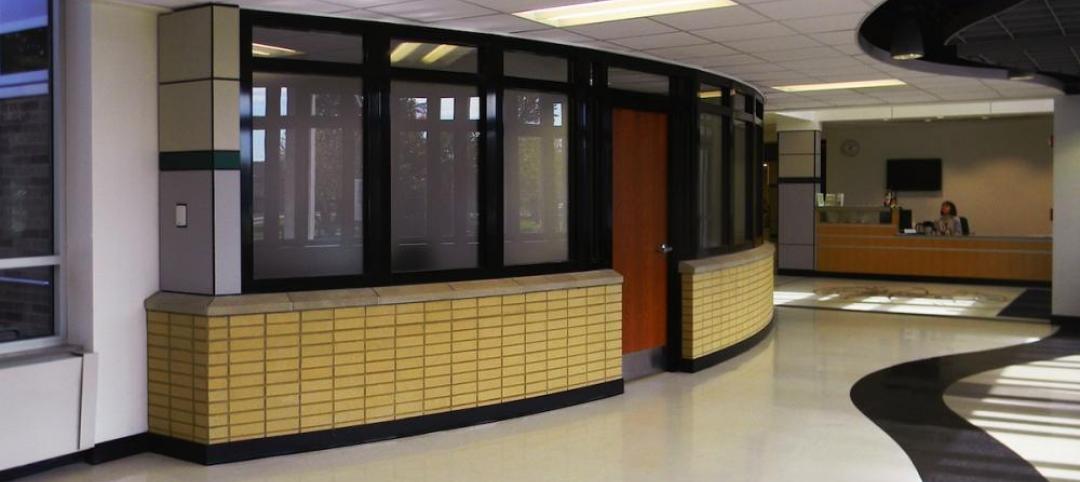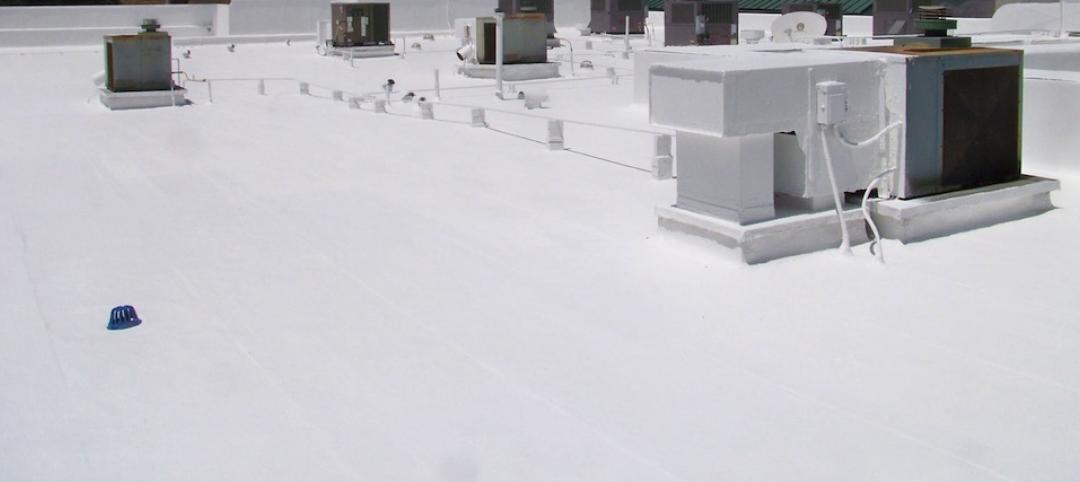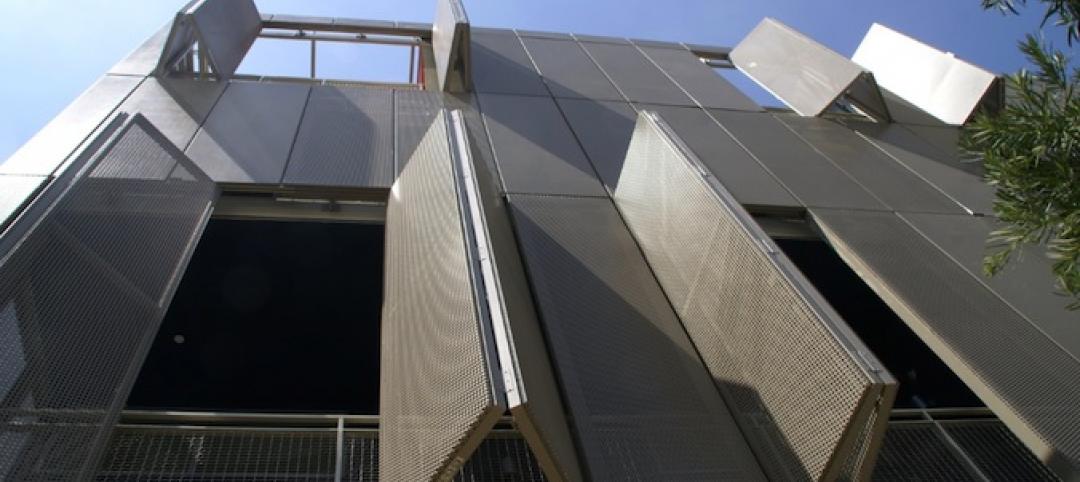Every day, in gyms across America, people of all ages and shapes exercise on treadmills, bicycles, steppers, and elliptical machines that provide their users with digital readouts of how fast they are going and how many calories they are burning.
And now, a new 1,300-sf gym that’s part of The Market at I-Square, a mixed-use development in Rochester, N.Y., is using the energy generated by members on its 17 spin bikes, two recumbent bikes, and two ellipticals as one of the sources powering The Imaginarium, a two-story, 9,000-sf Net Zero Energy arts-and-sciences center within the development that showcases earth-friendly practices, and includes the ECO Gym on its second floor, a rooftop kitchen and bar, a vertical garden, and a virtual-reality lounge.
ECO gym, which opened a few weeks ago, is expected to generate 3,660 kWhs of electricity annually, or about 5% of the Imaginarium’s annual demand. The Imaginarium gets another 35% of its power from small wind turbines with a power rating of 8.9 kWs. Other renewable energy sources for this center include 92 solar panels, and a geothermal heating and cooling system.
The exercise machines were provided by SportsArt America, whose U.S. headquarters is in Mukilteo, Wash. SportsArt started producing fitness equipment in 1977 and launched its ECO line in 2014.
Each piece of equipment has an interface where users can track their “human watts” (the amount of electricity a user is generating by using the equipment) and compare these to the amount of electricity the equipment returns to the grid. The company estimates that about 74% of the energy generated during a workout on its equipment is captured for use to power the building.
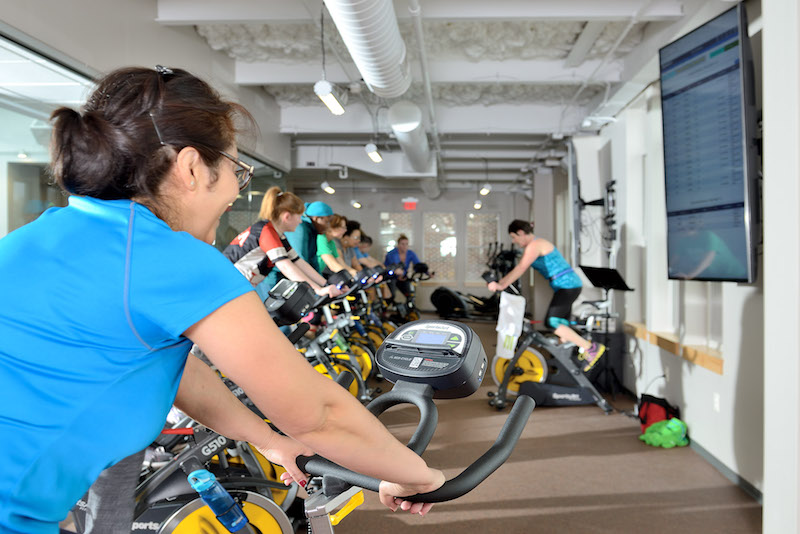
The gym's equipment lets users track their “human watts” against the amount of eletricity returned to the grid. The equipment captures about 74% of what's generated for the building's energy consumption. Image: SportsArt
Until recently, SportsArt—which does business in over 70 countries and has offices in the U.K., Switzerland, Taiwan, and Beijing—has placed its equipment mostly in gyms and hotels in Europe and Asia. It is now eyeing North America for growth.
The first U.S. gym to take on the company’s ECO-POWR cardio line of spinning bikes was Sacramento (Calif.) Eco Fitness, which opened in December 2016. At the time of that opening, SportsArt America estimated that a single hour-long workout would produce more than 160 watts per hour per unit of electricity.
Ivo Grossi, its CEO, says SportsArt America’s main target markets for expansion in the U.S. are independent health clubs and studios; colleges and universities; hotels, and multi-housing and residential projects. (On its website, SportsArt America has a room-planning page that allows homeowners to digitally place its equipment in different residential room configurations.)
“We look forward to bringing sustainability to the forefront of the fitness industry. We aspire to be the Tesla of fitness, which is a vision in line with the wants of the largest demographic group flocking to the fitness industry: The Millennials,” says Grossi.
I-Square and SportsArt America were involved in the interior design of ECO Gym in Rochester, whose Building Team included Meehan Architecture (architect), LeFrois Builders & Developers (GC), CM Armitage Electrical Contracting (EE), Kenron Industrial Air Conditioning (HVAC), and Green Leaf Professional Services (IT).
Related Stories
| May 16, 2013
Chicago unveils $1.1 billion plan for DePaul arena, Navy Pier upgrades
Hoping to send a loud message that Chicago is serious about luring tourism and entertainment spending, Mayor Rahm Emanuel has released details of two initiatives that have been developing for more than a year and that it says will mean $1.1 billion in investment in the McCormick Place and Navy Pier areas.
| May 7, 2013
First look: Golden State Warriors stadium by Snøhetta, AECOM
Architects Snøhetta and AECOM have revealed their latest renderings of a new stadium for NBA basketball team the Golden State Warriors on the waterfront in San Francisco.
| May 2, 2013
Holl-designed Campbell Sports Center completed at Columbia
Steven Holl Architects celebrates the completion of the Campbell Sports Center, Columbia University’s new training and teaching facility.
| Apr 30, 2013
Tips for designing with fire rated glass - AIA/CES course
Kate Steel of Steel Consulting Services offers tips and advice for choosing the correct code-compliant glazing product for every fire-rated application. This BD+C University class is worth 1.0 AIA LU/HSW.
| Apr 26, 2013
BIG tapped to design Europa City in suburban Paris
Danish architecture firm, BIG - led by Bjarke Ingels – has been announced as the winner of an international invited competition for the design of Europa City, a 800,000 square meter cultural, recreational and retail development in Triangle de Gonesse, France.
| Apr 24, 2013
Los Angeles may add cool roofs to its building code
Los Angeles Mayor Antonio Villaraigosa wants cool roofs added to the city’s building code. He is also asking the Department of Water and Power (LADWP) to create incentives that make it financially attractive for homeowners to install cool roofs.
| Apr 12, 2013
Chicago rail conversion puts local twist on High Line strategy
Plans are moving forward to convert an unused, century-old Chicago rail artery to a 2.7 mile, 13 acre recreational facility and transit corridor.
Building Enclosure Systems | Mar 13, 2013
5 novel architectural applications for metal mesh screen systems
From folding façades to colorful LED displays, these fantastical projects show off the architectural possibilities of wire mesh and perforated metal panel technology.
| Mar 5, 2013
Recycled recreation: Waste-to-energy plant combines with ski resort
A new project near Copenhagen pushes the boundaries of the term "mixed use," combining a waste-to-energy plant with a ski resort.


